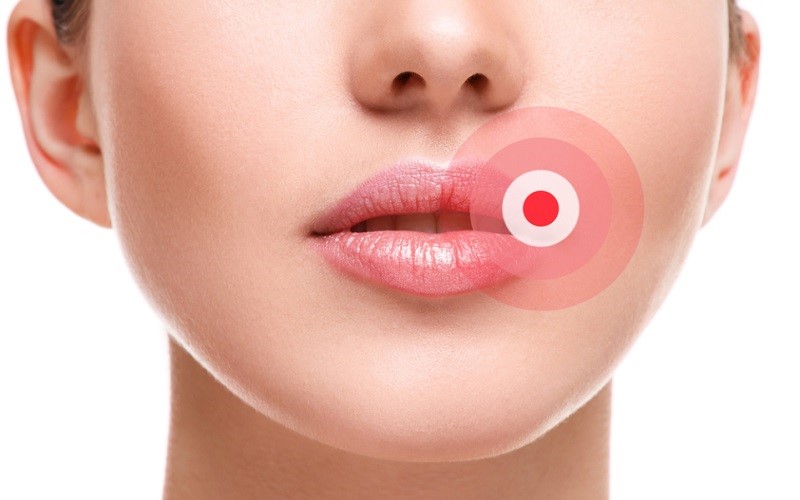Cold sores are a fairly common nuisance that affects a wide range of individuals regardless of their age. Caused by the herpes simplex virus, the appearance of cold sores is a clear sign you have oral herpes. However, there is nothing to be alarmed about, because even though it’s troublesome, it is treatable. With an estimated 3.7 billion people under the age of 50 being infected by the HSV-1 globally (which is roughly 67% of people worldwide), herpes is one of the most common, highly-contagious viruses that can affect a person’s skin. Since it causes cold sores that are hard to ignore and even harder to not pop, in this article, we’re explaining what happens if you don’t resist the temptation of popping a cold sore, why you shouldn’t do it, and what are some alternative approaches to treating cold sores. Let’s take a look.
What is a cold sore?
Cold sores are blisters full of fluid, and they’re caused by HSV-1 (herpes simplex virus type 1), an infection that causes oral herpes and is normally transmitted through direct contacts such as kissing or sharing eating utensils and toothbrushes. The sites of infection are usually areas on lips and around the mouth, and even though cold sores are highly contagious, they are treatable. Other than the appearance of blister sores, other symptoms that are associated with HSV-1 are itching, fever, headaches, tiredness, and a lack of appetite, symptoms that are similar to the flu. Once you experience herpes infection, the virus stays in your system and remains dormant and it can cause cold sores when reactivated. It is important to note that even though the symptoms aren’t present, a herpes infection can still be transmitted.
What happens when you pop a cold sore?
Like any other infection we face, cold sores need to pass through several different stages before our body can heal itself properly. When the healing process is interrupted, it can cause additional problems, such as scarring, pain caused by irritation, as well as developing new infections that slow down the healing process. What’s more, when you release the fluid from the blisters, it increases the risk of spreading the herpes simplex virus to other parts of your body, as well as increase the chances of the HSV-1 being transmitted to other people you come into contact with.
What to do instead
As tempting as it can be to pop a cold sore, it is best to leave it to heal on its own as it will gradually disappear without leaving a scar on your face. However, have in mind that it might take weeks, so if you need a faster solution, turn to cold sore medications. For quick pain relief, it would be best to apply a quality cold sore cream to help cold sores heal faster. Effective and easy to use, this treatment inactivates the virus and dries up the blisters, reducing healing time and reducing unpleasant symptoms. Applying a cold towel or ice may help alleviate burning and minimize the redness of the infected area while moisturizing the sores when they start to crust over will help reduce the appearance of flakes.
How can I prevent cold sores?
While cold sores are impossible to cure, there are ways to reduce the chances of an outbreak and prevent the virus from spreading. Even if the virus is dormant, there is a possibility of an outbreak being triggered by certain stimuli. Those include feeling stressed, experiencing fever or suffering from an illness, having a menstrual period, or being exposed to the sun. However, over time the body will start producing antibodies that should help reduce the outbreaks and make them become less intense. When the symptoms are active, be sure to wash your hands regularly and avoid kissing, sharing utensils, and engaging in activities that increase the risk of spreading the virus.
Cold sores can be annoying, but with the right approach, you can easily treat them and help them heal faster. Consider using some of the treatment methods mentioned above to ensure you don’t spread the virus and successfully avoid scarring in the process.





Like this article? Share with your friends!